MALAYSIAN EDUCATION DIRECTORS PASS ON THE PROBLEMS UPWARDS
The NST report (11th July 2007) titled “Solve problems, district education officers told” regarding Deputy Education Minister Datuk Noh Omar’s lashing out at district education departments which abdicated their responsibility of helping schools cope with disciplinary problems. This is another example of an outcome that could be the Education Ministry’s own doing. I refer to the frequent change of names of positions /jawatan of officers in the Education Ministry that has been going on over the past two decades or so and also the gradual but sure decentralization of the managing process in education although more managerial positions resulted.
The point I am trying to make is that a director directs and does not manage these days. Manage literally means solving problems by running, directing, administering, supervising, handling, dealing with, controlling, coping, getting by, getting along, making do, surviving and so on. One can get a degree in educational management in some countries but not here in Malaysia, if I am not wrong.
In Malaysia, the real educational managers are the classroom teachers who do all the tasking of a manager mentioned above. Those who outrank them are all directors / pengarah who just direct and more often than not to refer ( or have to) the slightest problem to the immediate superior who passes it on like a rugby team’s three quarters along the chain of educational command. This is simply because the power to do so has been centralized and any director who tries to solve it might get chastised by his so many superiors. So, going by their survival instincts, the assorted directors and assistant directors do the thing required of them which is to just “pass the buck around” till it reaches ministerial attention and sometimes, intervention and reprimand as is the case with the Deputy Minister’s reported statement.
BY: JOE CHELLIAH - taught in Malaysia between 1960 and 1996 in government institutions at the primary, secondary and tertiary levels – now retired.
skip to main |
skip to sidebar

Last 22 Years

My highest academic achievement came in 1986 aged 42 - M.A. ( Music)

She is the best thing that has happened to me. She is still trying hard to make me a perfect gentleman.


Started as a teacher in 1960 and retired as Head of Music Dept. at Maktab Perguruan Ilmu Khas, KL

On stage 1961

Me on bass guitar

A legendary band frm Seremban that recorded 4 pop yeh2 albums
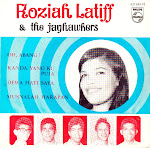
The Jayhawkers 1965 -1976

Won RTM Band Contests - 1969 (Muzik3) & 1977 Pertandingan Pancaragam

Won National Song Writing Contests

Was teaching so no long hair....also preferred jazz music

Performing in a hotel lounge - 1982 - Big band days over
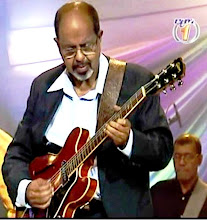
RTM Concert 2007 - on Gibson ES 330

Maktab Perguruan Ilm Khas

So comel one....my grandson looks like this a bit. So I am going to be around for a long time through him and his children/progeny.

Dashing Bachelor at Port Dickson Batu 5
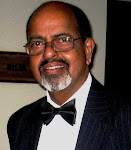
Still handsome but getting top bald now.

In 2016, in my Iowa Hawkeye spirit. Still okay, Alhamdulillah.
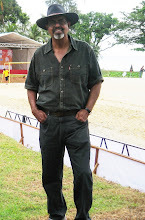
Great fun and keeps me young

Nor & I Lead a Dynamic Team
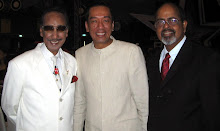
Ahmad Nawab, Ramli M.S. and Me too ke?

A TV Recording at FINAS - 2011

CAUTION: Not Recommended for the Elderly.

Holiday March 2010

Chairing an IMC Asia-Oceania Conf work session

With IMC President

In Turkish Royal Costumes

Such a beautiful place

Have vacationed in UK several times.

A unique experience with Hindu Malays

Vacation August 2007

Vacation 2006

Vacation 2005

2005

Vacation 2001

Vacation 2001

Capetown 2000

Was 93 kg then - now 83 kg just by eating less rice
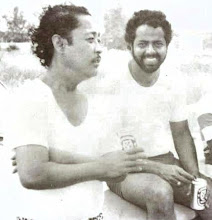
Greatest pianist I have performed with
A Musician Educator's Thought
An Entertainment Consultant

Last 22 Years
Joe Chelliah D.N.S., A.N.S., P.J.K.

My highest academic achievement came in 1986 aged 42 - M.A. ( Music)
My Wife Norhamidah

She is the best thing that has happened to me. She is still trying hard to make me a perfect gentleman.
MY CONTACTS
Link to my events business website
Blog Archive
Started as a Drummer (1960)

Joe The Cikgu Pemuzik (1960 -1996)

Started as a teacher in 1960 and retired as Head of Music Dept. at Maktab Perguruan Ilmu Khas, KL
Then took up guitar

On stage 1961
The Twilights ( 1962 -1964)

Me on bass guitar
FORMED THE JAYHAWKERS (1964 -1976)

A legendary band frm Seremban that recorded 4 pop yeh2 albums
Became a Recording Artiste in 1966

The Jayhawkers 1965 -1976
The Shades of Time on RTM - 1976

Won RTM Band Contests - 1969 (Muzik3) & 1977 Pertandingan Pancaragam
PESTA LAGU MALAYSIA 1980 - FINALIST

Won National Song Writing Contests
Tried Rock Music late 1979 - 1980

Was teaching so no long hair....also preferred jazz music
Then became a keyboardist

Performing in a hotel lounge - 1982 - Big band days over
Became a jazz band leader
Known as a Jazz Guitarist Altho' Only Jazz Influenced Guitar Player

RTM Concert 2007 - on Gibson ES 330
Retired as Head of Music Dept at MPIK, 1996

Maktab Perguruan Ilm Khas
Joe at 10

So comel one....my grandson looks like this a bit. So I am going to be around for a long time through him and his children/progeny.
HANDSOME ME IN 1968

Dashing Bachelor at Port Dickson Batu 5
That's Me Again in 2009

Still handsome but getting top bald now.
A RECENT PHOTO AS EVENTS CONSULTANT

In 2016, in my Iowa Hawkeye spirit. Still okay, Alhamdulillah.
EVENT MANAGER NOW SINCE 1993
Great fun and keeps me young
The NJEC Production Team

Nor & I Lead a Dynamic Team
Famous Musicians from 3 Eras

Ahmad Nawab, Ramli M.S. and Me too ke?
Still perform occasionally upon invitation

A TV Recording at FINAS - 2011
HORSE RIDING ANYONE?

CAUTION: Not Recommended for the Elderly.
My S. India Trip - At Cape Commorin

Holiday March 2010
IN CHINA - July 2010

Chairing an IMC Asia-Oceania Conf work session
2012 - At International Music Council(IMC) Conderence in Talinn, Estonia

With IMC President
Istanbul Holiday - 2010

In Turkish Royal Costumes
Stockholm Holiday 2009

Such a beautiful place
AT HARROD'S LONDON 2008

Have vacationed in UK several times.
In Bali 2013

A unique experience with Hindu Malays
At The Taj Mahal

Vacation August 2007
DOWN BELOW - IN MELBOURNE

Vacation 2006
IN COLUMBO'S MT. LAVANIA HOTEL

Vacation 2005
AT MACAU

2005
I LOVE PARIS

Vacation 2001
AT LONDON HYDE PARK

Vacation 2001
WITH BASKERS IN SOUTH AFRICA

Capetown 2000
WITH LONDON BOBBIES

Was 93 kg then - now 83 kg just by eating less rice
LATE 1970's - WITH THE LEGENDARY TONY SOLIANO PD

Greatest pianist I have performed with

